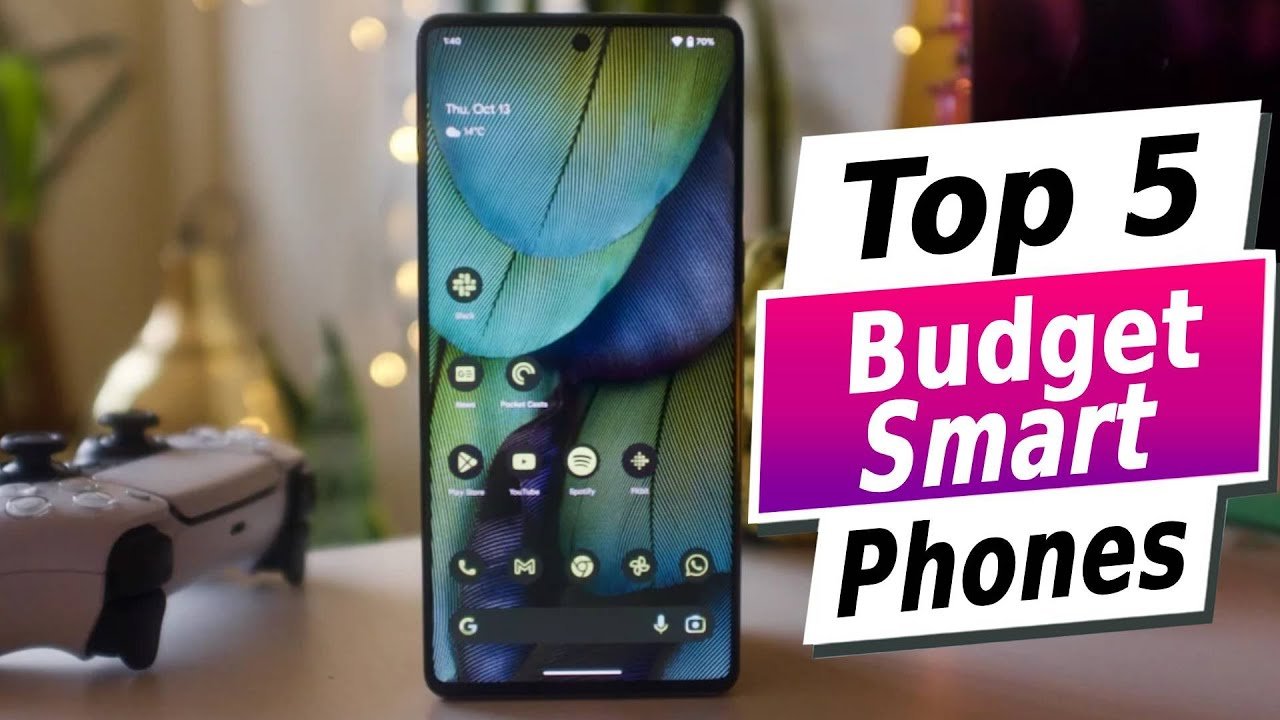Living without technology is a choice for some people who prefer a simpler, more connected lifestyle. Their decision to eschew modern gadgets and digital communication helps them live more mindful and present lives.
For those who live without technology, their days are filled with real connections, nature, and hands-on experiences. They often find peace and contentment in a life that isn’t dictated by screens and notifications. Living off the grid allows them to appreciate the beauty of the natural world, build stronger relationships, and embrace a slower pace of life.
While it may seem unconventional in today’s tech-driven society, for some, this lifestyle offers a sense of freedom and fulfillment that can’t be found in the digital world.
The Appeal Of A Technology-free Lifestyle
Living without technology offers a refreshing escape from the digital world, allowing individuals to reconnect with themselves and the simplicity of life. Embracing a technology-free lifestyle promotes mindfulness, creativity, and a deeper connection with nature, providing a much-needed respite from the constant buzz of screens and notifications.
Back To Basics
Living without technology is a concept that may seem foreign and challenging in our modern, tech-driven society. However, there is a growing movement of individuals who are embracing a technology-free lifestyle. These individuals are finding value in simplicity, connection, and a return to the basics of human existence. The appeal of living without technology lies in the opportunity to disconnect from the constant noise of screens and engage in more meaningful experiences.
Exploring Nature
One of the primary attractions of a technology-free lifestyle is the chance to explore and reconnect with nature. In a world dominated by smartphones and laptops, many people have become detached from the natural world around them. Living without technology opens up a whole new realm of possibilities for outdoor adventures, such as hiking, camping, and stargazing. Nature offers tranquility, beauty, and a sense of wonder that cannot be replicated by any digital device. By immersing themselves in nature, individuals living without technology find solace, inspiration, and a deep appreciation for the world outside their screens.
Word and Character Counter Tool
Type or paste your text below:
Total words: 0
Total characters: 0
Challenges Of Living Without Technology
Living without technology can present numerous challenges in various aspects of daily life, from communication and social interactions to completing routine tasks and work responsibilities. Without the convenience of modern devices and digital tools, individuals who choose to eschew technology often encounter difficulties that most people take for granted.
Communication Difficulties
Without access to smartphones, email, or social media, individuals living without technology face limitations in staying connected with others. In-person interactions become the primary mode of communication, which can be challenging when trying to coordinate plans or communicate at a distance. This reliance on face-to-face communication can lead to feelings of isolation for those accustomed to the instant connectivity of the digital world.
Daily Tasks And Work
Completing daily tasks such as grocery shopping, banking, and information gathering are more cumbersome without the aid of technology. Additionally, many job roles and industries rely heavily on digital tools and platforms, making it difficult for individuals living without technology to participate effectively in the modern workforce. From accessing information to completing necessary paperwork, the absence of technology can significantly impact productivity and efficiency in the professional realm.
Health Benefits Of A Technology-free Lifestyle
Living without technology may seem unimaginable in today’s digital age, but it offers a myriad of health benefits that are often overlooked. Adopting a technology-free lifestyle can have a positive impact on both physical health and mental well-being, allowing individuals to reconnect with nature, reduce stress, and improve overall quality of life.
Physical Health
Ditching technology can lead to a more active lifestyle, promoting physical health through increased outdoor activities such as walking, hiking, and biking. Engaging in these physical activities not only boosts cardiovascular health but also strengthens muscles, improves flexibility, and helps maintain a healthy weight.
Mental Well-being
Unplugging from technology fosters a greater sense of mindfulness and mental clarity. Without the constant distractions of screens and notifications, individuals are able to focus on the present moment, leading to reduced anxiety and enhanced mental well-being. Additionally, spending more time in nature has been proven to lower stress levels and elevate mood, contributing to a positive state of mind.
Community And Social Aspects
Living without technology is a lifestyle choice that not only impacts individuals but also fosters a unique sense of community and social connection. In a world dominated by screens and digital interactions, those who choose to live unplugged find solace and deep relationships in their shared commitment to a technology-free life. Let’s explore how these individuals navigate the challenges and embrace the rewards of building stronger connections and experiencing a life rich in shared experiences.
Building Stronger Connections
Living without technology allows people to focus on forging genuine connections and cultivating deep relationships. In a technologically-driven world where conversations often take place through text messages and social media platforms, there is an innate longing for face-to-face interactions and authentic human connections. By removing the distractions of screens and gadgets, individuals who live without technology are able to create a space where meaningful conversations and personal connections can thrive.
When spending time with others who share the same lifestyle, individuals who live without technology can develop genuine friendships based on common values and experiences. Without the constant interruptions of notifications and distractions, they have the opportunity to truly listen and empathize with others, strengthening the bonds of their relationships.
Shared Experiences
Living without technology enables individuals to fully immerse themselves in the present moment and engage in shared experiences with others. Rather than capturing a moment through the lens of a camera or sharing it on social media, those who live unplugged focus on fully experiencing and savoring the moment together with their communities.
Without the reliance on technology, explorations and activities become more immersive and engaging. Whether it’s participating in outdoor adventures, organizing community events, or simply gathering around a bonfire for storytelling, the absence of technology opens the door to creating lasting memories and strengthening the bonds within the community.
Moreover, living without technology encourages creativity and resourcefulness among community members. Without the convenience of digital entertainment, individuals come together to create their own entertainment and find joy in traditional activities like board games, music, and storytelling. This shared creativity cultivates a sense of belonging and forms the foundation for a vibrant community.
In conclusion, the decision to live without technology not only impacts individuals on a personal level but also fosters a tight-knit community built on strong connections and shared experiences. By embracing genuine interactions and immersing themselves in the present moment, those living unplugged are able to create a supportive and fulfilling community that treasures human connection and celebrates the beauty of simple, technology-free living.
Preserving Traditions And Heritage
Living without technology allows communities to preserve their traditions and heritage in a world that is rapidly advancing technologically. Maintaining cultural practices is vital for these communities as it helps them retain their unique identity and pass down centuries-old customs to future generations.
Cultural Preservation
When societies live without technology, they are able to preserve their customs and cultural practices, safeguarding their unique identity. These communities hold on to their traditional rituals, dances, music, and storytelling methods, allowing them to remain connected to their roots.
In these communities, cultural preservation is not just a way of life, but a strategy to ensure their heritage is not lost. Elders play a crucial role in passing on knowledge and ensuring that traditional practices are upheld. With no distractions from modern technology, the focus remains on the cultural traditions that have shaped these communities for centuries.
By keeping their customs alive, these communities contribute to the diversity and richness of the world’s cultural mosaic.
Sustainable Living
Living without technology promotes sustainable living practices that have minimal impact on the environment. These communities rely on natural resources for their daily needs, respecting the balance of nature and ensuring their long-term survival.
To achieve sustainability, these societies prioritize renewable resources such as solar power, wind energy, and organic farming. They avoid wasteful consumption, instead adopting a lifestyle that values simplicity and resourcefulness. This mindful approach to living helps preserve the environment for future generations and mitigates the effects of climate change.
Furthermore, without the reliance on technology, these communities practice self-sufficiency, producing their own food, crafts, and tools. This not only reduces their ecological footprint but also empowers them economically and promotes local entrepreneurship.
Frequently Asked Questions On People Who Live Without Technology
Can People Actually Live Without Technology?
Yes, people can live without technology. Although it may be challenging in today’s digital age, there are still individuals who choose to lead a technology-free lifestyle. They rely on more traditional methods and enjoy a simpler way of living.
What Are The Benefits Of Living Without Technology?
Living without technology can have several benefits. It helps individuals connect on a deeper level with nature, foster face-to-face interactions, improve mental well-being, increase productivity, and reduce dependence on devices. Enjoying a simpler life can lead to a greater sense of contentment and mindfulness.
How Do People Who Live Without Technology Communicate?
Individuals who live without technology rely on various non-digital means of communication. This includes face-to-face conversations, writing letters, using landline telephones, and even communicating through hand signals or Morse code. They value direct human connection and find joy in the simplicity of these methods.
Is It Possible To Do Without Digital Entertainment?
Absolutely! People who live without technology find alternative forms of entertainment. They engage in hobbies such as reading books, gardening, playing musical instruments, doing crafts, practicing mindfulness, and spending quality time with loved ones. These activities provide fulfillment and entertainment without relying on digital devices.
Conclusion
Living without technology is a lifestyle choice that challenges our dependence on modern conveniences. The individuals who embrace this alternative lifestyle have shown us that it’s possible to find contentment and fulfillment in simpler ways. By disconnecting from the digital world, they reconnect with nature, their own creativity, and meaningful human connections.
As we navigate the fast-paced digital age, we can learn valuable lessons from those who choose to live technology-free and find balance in a world that is increasingly dominated by screens and devices. Embracing aspects of their lifestyle may offer us a fresh perspective and a renewed appreciation for life’s simplest pleasures.





Leave a Reply